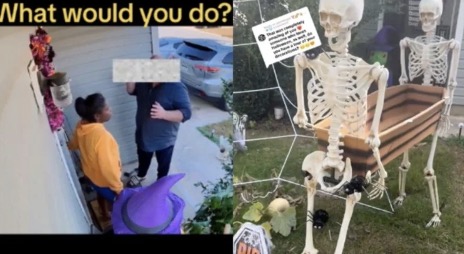
It’s spooky season—a time for fun, scares, and a bit of darkness. During this time of year, we expect to see creepy decorations everywhere. It’s not yet time for the cheerful holiday season.
However, just because Halloween is near doesn’t mean we can’t show kindness. One Halloween fan shared this message in a TikTok video that has since gone viral.
Salena Webb loves Halloween. She is a mother of four from South Carolina, and like many others, she celebrates by decorating her yard with Halloween items. Salena created a whole graveyard scene in her front yard, complete with ghosts, spiderwebs, pumpkins, a witch, tombstones, and skeletons carrying a casket. It took a lot of time to set up the display. But when her neighbor came to ask her to take it down, she agreed.
Her neighbor asked her to remove some decorations to make things easier for his elderly father.
Salena shared the moment her neighbor visited her to make the request in a TikTok video. In the video, the neighbor explains, “Hey, I know you’re celebrating Halloween. My dad just got diagnosed with lung cancer. He thinks the decorations are a bit scary.” He then points to the graveyard scene and asks, “Would you mind taking just the casket out?”
Salena felt sympathetic right away. Since her neighbor’s dad often spends time in his garage, which faces her yard, she understood why removing the casket was important. “I didn’t want to be a reminder of what could happen if he doesn’t beat cancer,” she told Insider. “I didn’t want to add stress to someone else’s life.”
Salena removed the casket and gave the skeletons badminton rackets instead. She moved the more scary decorations to her backyard. “I was a little sad at first,” Salena wrote in her TikTok caption, “But I realized that taking away the casket wouldn’t hurt me, but it might help my neighbor feel better as he deals with this news. Kindness is free, and compassion goes a long way.”
Many people praised Salena for her kindness. She posted the video and asked her followers what they would have done in her situation. While some said they wouldn’t have taken down their decorations, many praised Salena for her compassion.
“Now this is what being a good neighbor is all about. Kindness doesn’t cost anything. Thank you!” one user commented.
Another person wrote, “This was beautifully handled. The world needs more people like you! God bless you!”
Salena’s neighbor also appreciated her gesture. After she took down the casket, she brought him a card and some balloons. Even though there was a language barrier between them, she could tell he was thankful. He told her, “You’re good people.”
My 7-Year-Old Drew a Picture of My Husband with Another Woman and Wrote, ‘I Can’t Wait for You to Be My Mom’

When Amber, a hardworking mom and corporate attorney, discovers a drawing by her 7-year-old daughter, Mia, her world is shaken. The picture shows Mia’s teacher in Amber’s place with a heartbreaking caption. Suspecting betrayal, Amber confronts her husband, Jack, only to uncover something deeper… Mia’s feelings of abandonment amidst Amber’s busy life.
I didn’t think I’d be here… but this has been life lately.

A woman looking out the window | Source: Midjourney
I’m Livia, I’m thirty-four, married to my husband Jack for ten years, and I’m a mom to my bundle of joy, Mia, a seven-year-old little girl. Recently, I’ve been busier than I’ve ever been in my entire life, which is truly saying something because I’m a corporate attorney.
My mom’s health has been declining over the past year, and we’ve been throwing ourselves into her hospital stays, therapy sessions, and medication that costs way more than I care to admit.
To cover everything, I’ve been working insane hours because I’d do anything for my mother.

A woman sitting in a hospital bed | Source: Midjourney
Anything.
Jack has been the best partner and rock I could have ever asked for. He has stepped up at home in ways I never imagined or expected. Jack has taken on the cooking, cleaning, helping Mia with her schoolwork, and managing all the little things I used to handle.
He made it possible for me to keep everything afloat, even when it felt like I was drowning.

A father and daughter duo sitting on a couch | Source: Midjourney
But last night, everything changed before I could even catch my breath.
I came home late, exhausted, starving, and ready to collapse. After hurriedly eating a bowl of salmon and rice while Mia took her bath, I put my little girl to bed. As she dozed off, Mia mumbled something about puppets.
“I didn’t know that you could put your hand in a socket and it would be a puppet,” she said.

A green sock puppet | Source: Midjourney
“A sock, my darling,” I said. “Not a socket! Don’t you ever put your hand in a socket, Mia.”
She giggled.
“Okay, Momma,” she said, yawning.

A yawning little girl | Source: Midjourney
I started tidying up her dolls, which were scattered all over the carpet in her room, and then made my way to the coffee table in the living room. Crayons, white paper, and coloring books were scattered all over.
That’s when I found it. A drawing.
At first glance, it seemed innocent enough. A kid’s sketch of a happy family. A man, a woman, and a little girl holding hands. But when I looked closer, my stomach twisted.
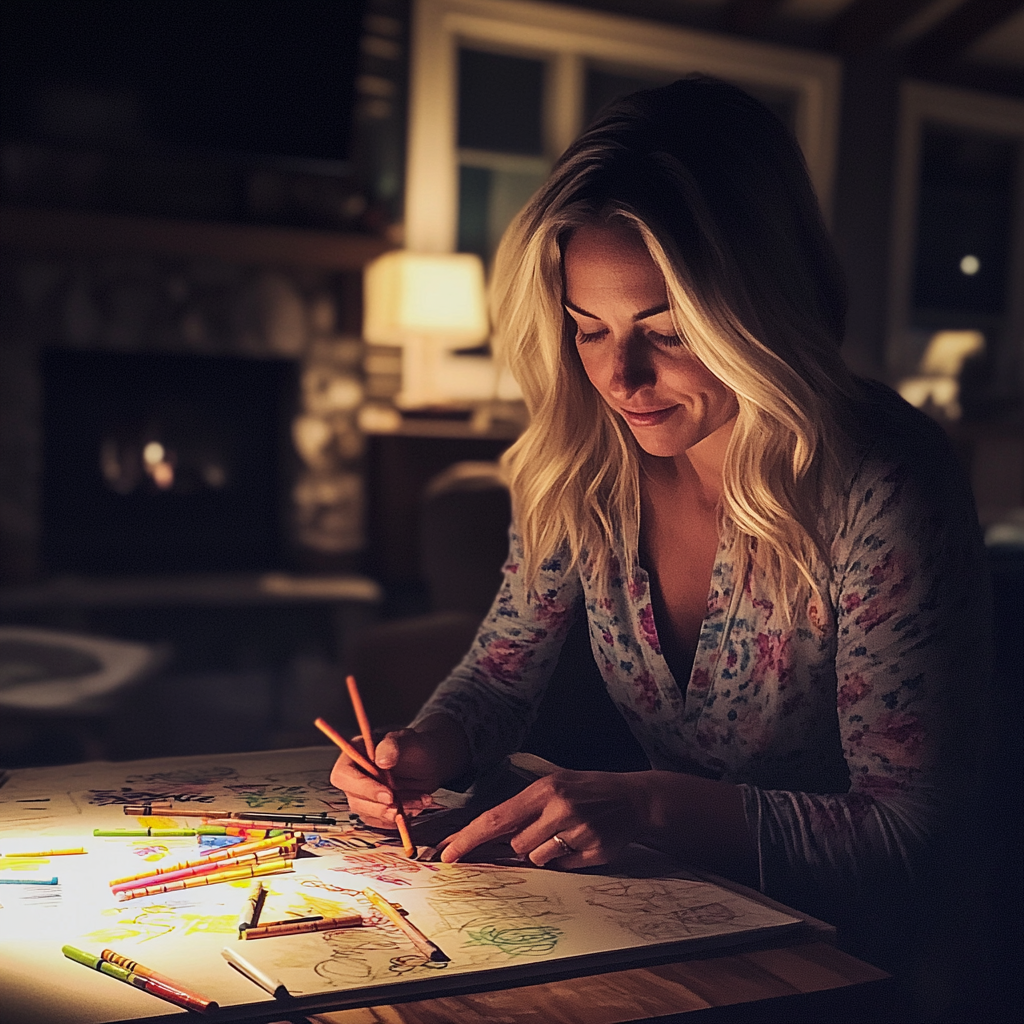
A woman gathering crayons | Source: Midjourney
The man was unmistakably Jack. The little girl was clearly Mia. But the woman? Definitely not me.
She had long brown hair and wore a flowing bridal gown. Beneath the drawing, in Mia’s little handwriting, were the words that broke my heart:
I can’t wait for you to be my mom!
It felt like the ground beneath me had given way.

A child’s drawing | Source: Midjourney
I took the picture to Mia’s bed and sat on the edge, trying to wake her up enough to get answers.
“Darling girl, can you tell me about this drawing?” I asked her calmly.
“What drawing, Momma?” she asked, rubbing the sleep from her eyes.
When Mia took a look at the drawing, her face turned red, and she snatched the paper out of my hand, clutching it to her chest.
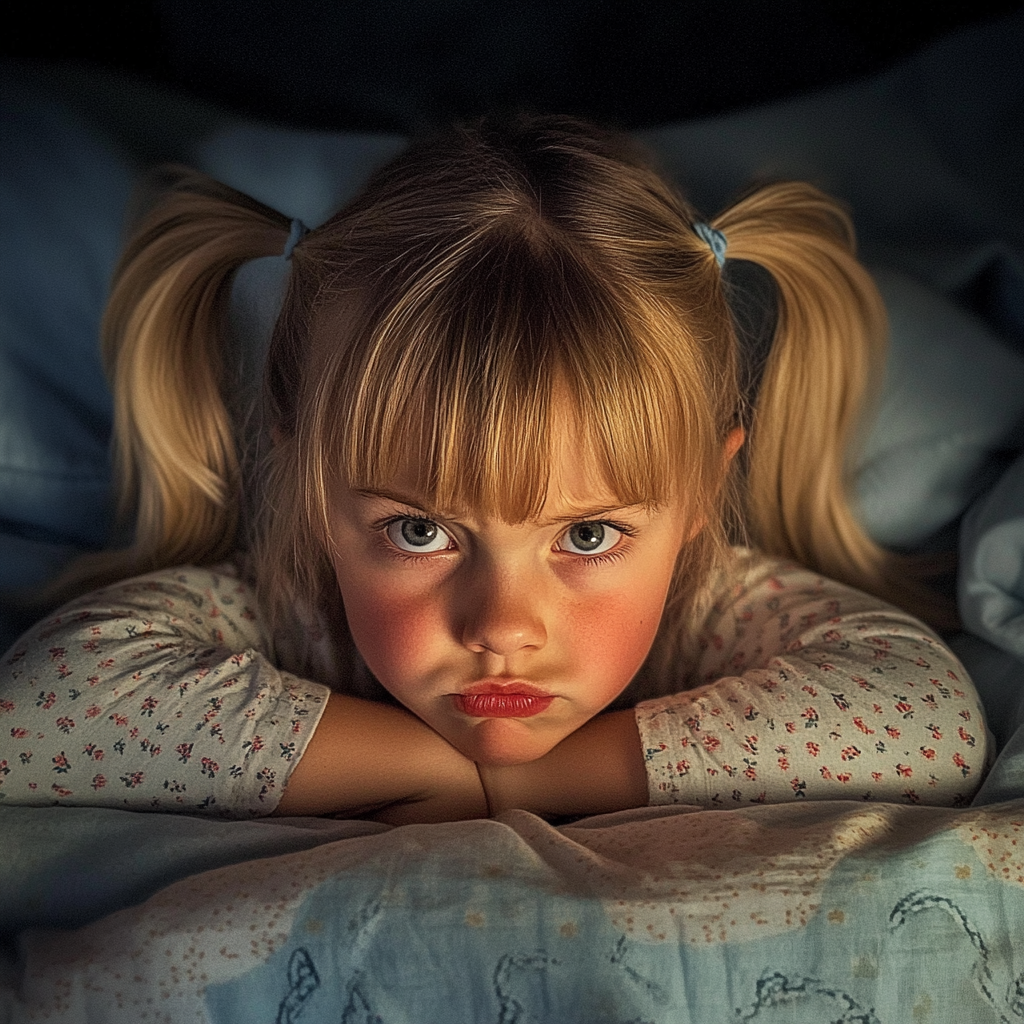
An upset little girl | Source: Midjourney
“You weren’t supposed to find that! Daddy said to hide it better!” she blurted out.
Hide it better? Jack? Hide what better?
My heart started pounding. What was going on? Was Jack cheating? And what was worse… was Mia already imagining this other woman as her mom?
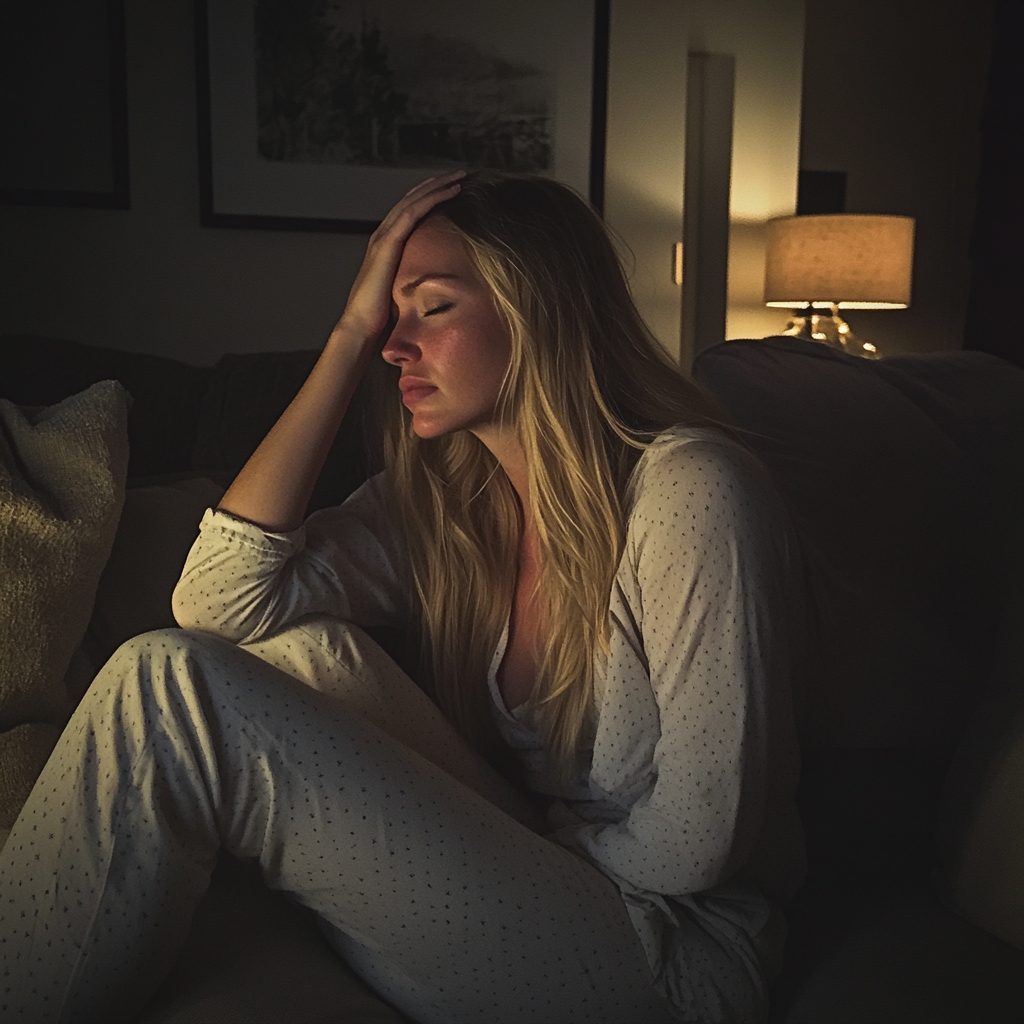
An upset woman sitting on a couch | Source: Midjourney
I barely slept that night. My mind was running miles per hour. I thought about my mother, I thought about the work I still needed to do before heading to the office the next day, and I thought about my marriage…
By the morning, I had gone through a storm of worst-case scenarios. I sat in the kitchen, waiting for Jack to get ready for work. Mia had already left for school.
“What is this?” I demanded, thrusting the drawing into his hands.

An upset woman standing in a kitchen | Source: Midjourney
His eyes widened, and his face turned pale.
“You told her to hide it?” I asked. “You actually told Mia to hide it?”
“Wait, wait,” he stammered, holding up his hands defensively. “It’s not what you think, Amber. Let me explain it all to you.”

A worried man standing in a kitchen | Source: Midjourney
“You have exactly five seconds, Jack. I’ve been going crazy the entire night.”
My husband ran a hand through his hair, clearly distressed.
“Come with me,” he said.
“What? Where are we going? What about work?” I asked.

A man standing in a kitchen with his head bowed down | Source: Midjourney
“We’re going to Mia’s school. I need to show you something,” he said.
I wanted to scream at him, but something in his voice, an urgency that didn’t feel like guilt, made me agree.
The drive to the school was tense and silent, my mind still racing. What would Jack show me at Mia’s school that would change anything? Was there an imaginary friend or imaginary step-in mother waiting for us?

An upset woman sitting in a car | Source: Midjourney
When we arrived at the school, Jack squeezed my knee. As we walked to the reception area, he squeezed my hand and asked to see Mia’s teacher, Clara.
As soon as Clara walked in, I felt like I’d been punched in the gut. She was stunning, and for the life of me, I couldn’t remember why I hadn’t met her before. She had long brown hair, a bright smile, and an effortlessly bubbly demeanor.
She had to be the woman from Mia’s drawing, it was unmistakable.

A smiling woman | Source: Midjourney
She smiled at Jack, and I wanted to scream.
“Clara,” Jack said. “Can you explain to my wife what’s been happening with Mia?”
Clara’s expression shifted to confusion but then softened as she glanced at me.
“Oh, of course,” she said.

A stressed woman | Source: Midjourney
She gestured for us to sit in the little room adjacent to the reception.
“Look, Mia’s been having a tough time lately,” she began. “She’s mentioned feeling like her mom doesn’t have time for her anymore. I’ve tried to reassure her, but she’s… well, look, she’s seven. And she’s been drawing a lot of pictures to process her feelings.”
Clara handed me a stack of drawings, and my heart sank as I flipped through them.
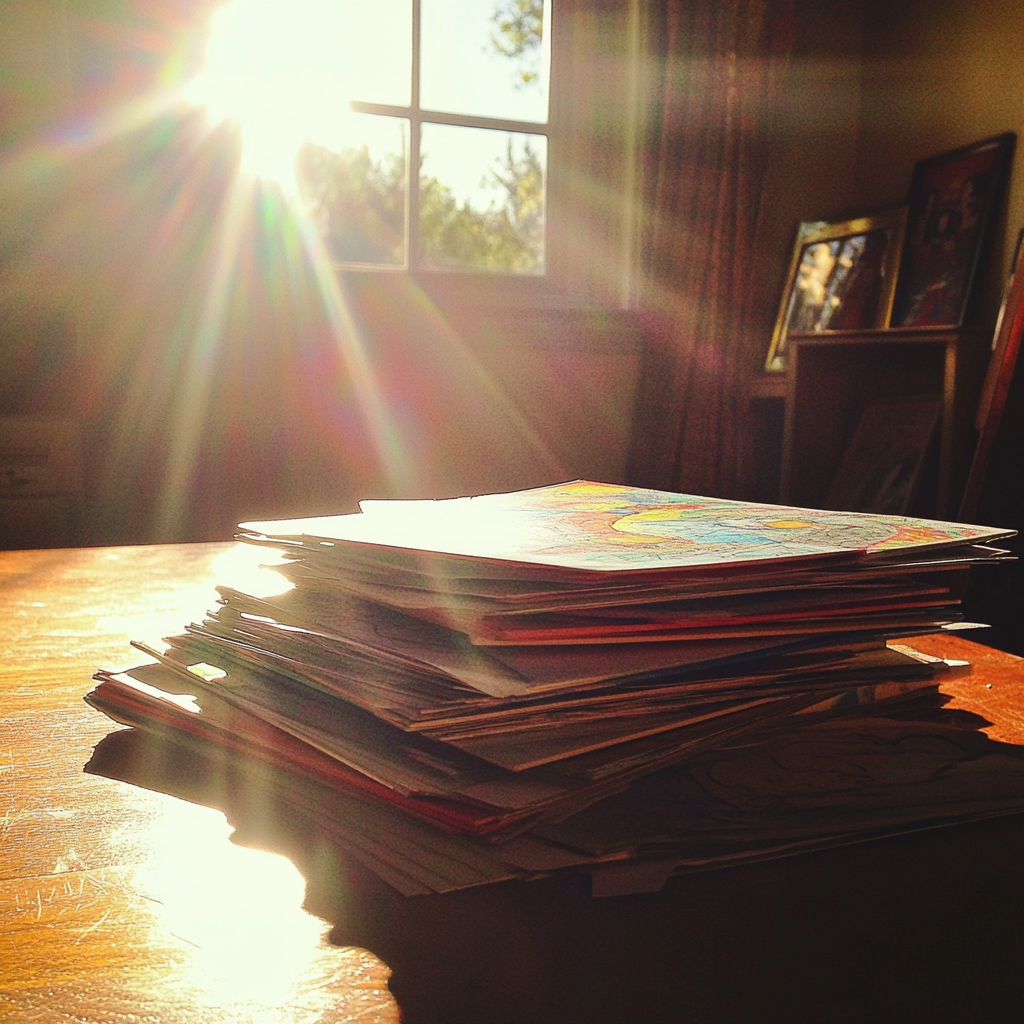
A stack of children’s drawings and coloring books | Source: Midjourney
Most were variations of the same theme. A happy family with Clara in my place. On the back of one of the drawings, there were more words I hadn’t noticed the first time:
Daddy and Clara.
“So, you’ve been spending time with my daughter?” I asked, unable to hide the edge in my voice.

An upset woman | Source: Midjourney
“Yes, of course,” she said. “But only in class, and I’m her teacher, after all. She stays after class sometimes to help me tidy up. She told me she feels like she’s losing her mom because you’re always busy. I’m so sorry if I overstepped. I’d never want to interfere…”
I turned to Jack, my chest tight.
“And you? What did you say to her about this?”

A stressed man | Source: Midjourney
Jack looked miserable.
“I found that picture last week,” he admitted. “I told Mia it wasn’t true, that you love her more than anything. But I didn’t know how to handle it. I didn’t want to make it worse by bringing it up when you were already so stressed out. I told her to put the drawing away because I knew it would hurt you.”
“You should have told me, Jack,” I said softly.

A woman holding her head | Source: Midjourney
I honestly didn’t know what to think.
Jack nodded, guilt in his eyes.
“I know, love,” he said. “I thought I was protecting you, but I see now that I just made it worse.”

An upset man | Source: Midjourney
My anger began to deflate, replaced by a wave of guilt so heavy it nearly knocked me off my seat. This wasn’t about Jack cheating or Clara overstepping. It was about my daughter, her sadness, her confusion, and her way of coping with my absence.
That night, I sat down with Mia at the kitchen table. I had dished us bowls of ice cream with all the toppings, hoping for a bonding moment between us.

Bowls of ice cream | Source: Midjourney
“Sweetheart,” I said softly. “I need to tell you something. I know I haven’t been around as much lately, and I’m so, so sorry. Grandma needs a lot of help right now, but that doesn’t mean I don’t want to be with you. You’re my everything, sweet girl.”
Mia’s eyes filled with tears, and she threw her arms around me.
“I thought maybe you didn’t like me anymore,” she whispered.
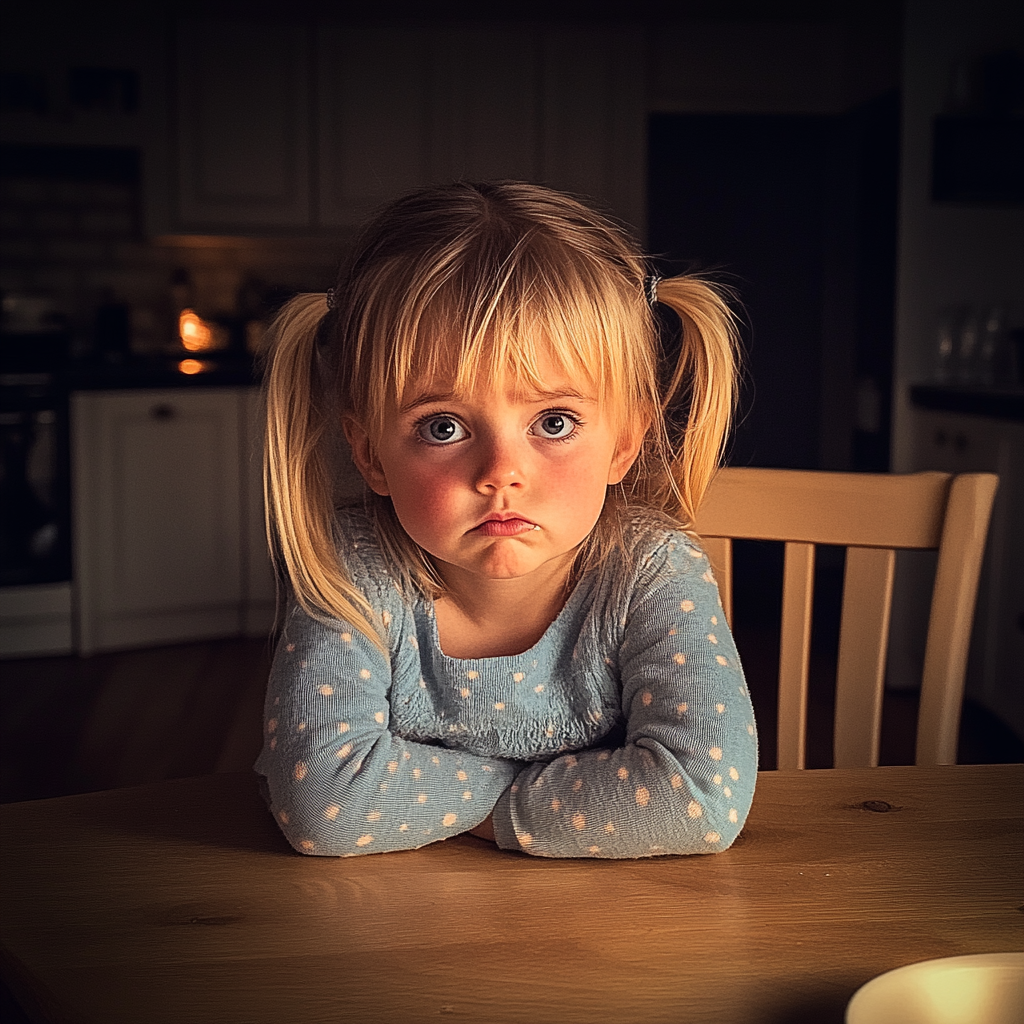
A little girl sitting at a table | Source: Midjourney
My heart shattered.
“I love you more than anything,” I said, holding her tightly. “Nothing will ever change that.”
In the weeks that followed, I made several lifestyle changes.
I cut back on work hours and asked my siblings to take on more of our mom’s care. Jack and I started a “Mom and Mia” night every week, just the two of us, doing whatever she wanted.
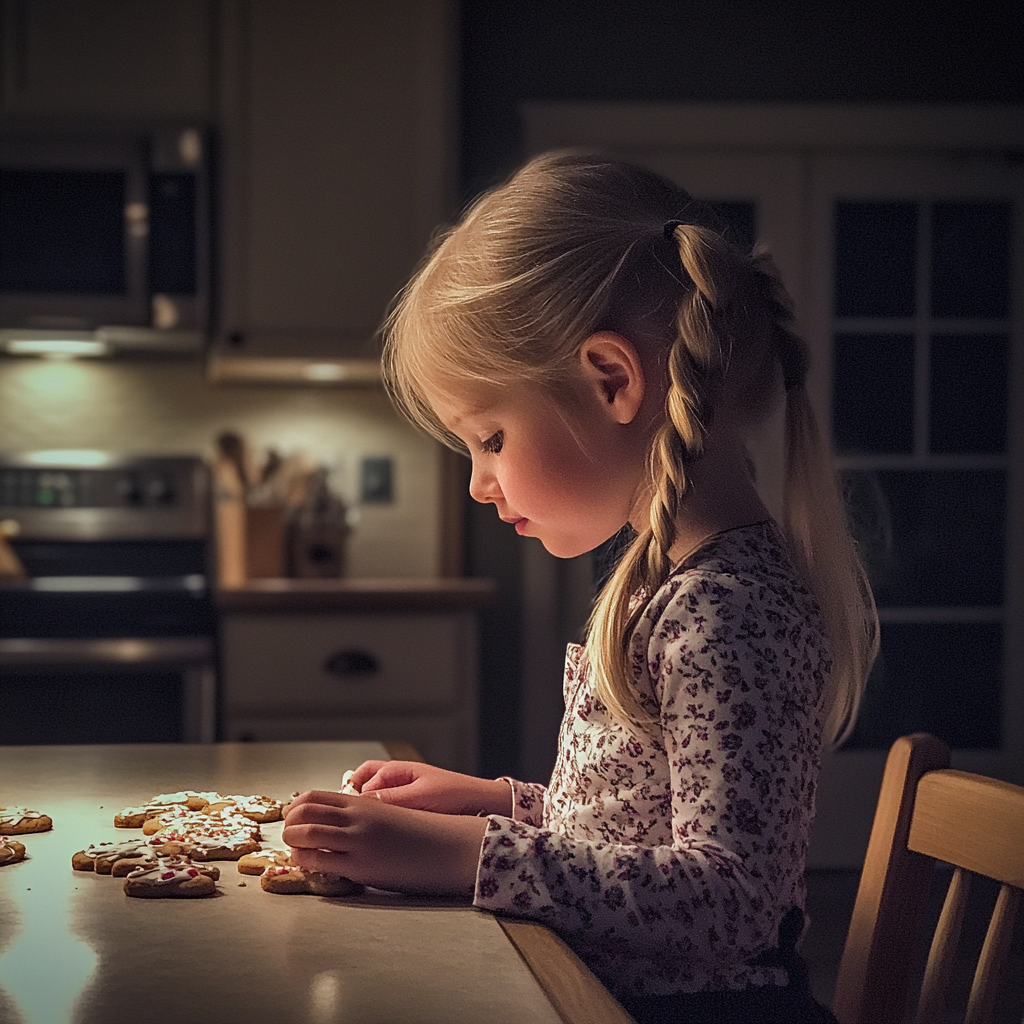
A little girl decorating cookies | Source: Midjourney
Sometimes it was baking cookies, other times it was a movie night, or building a fort, or sometimes it was just us dressing up and going on a date together.
I also had a heartfelt talk with Clara to thank her for being a wonderful teacher and being there for Mia when I couldn’t be.
She apologized again for any boundaries she might have crossed, but I reassured her that Mia’s drawings weren’t her fault.
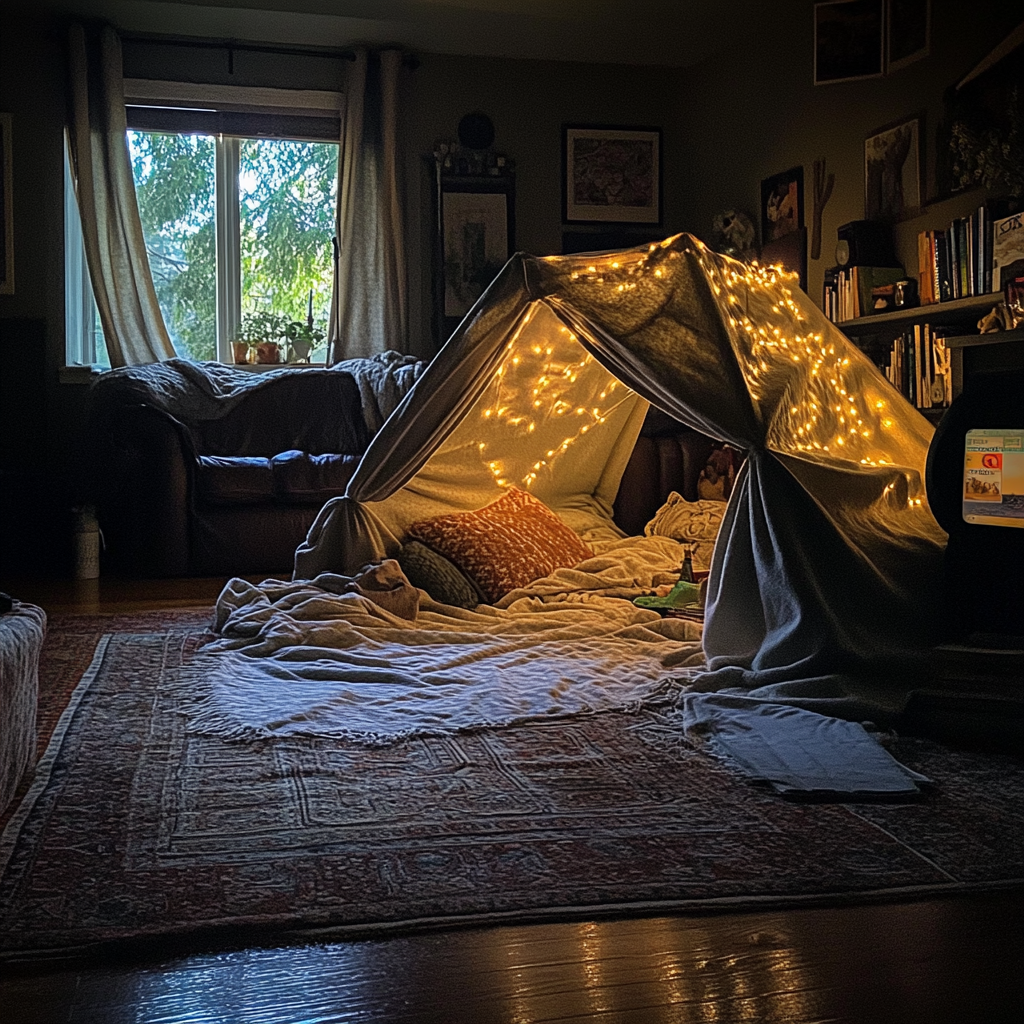
A blanket fort in a living room | Source: Midjourney
“I just feel bad, Amber,” she said as she cleaned up paintbrushes.
“I know, but you really shouldn’t, Clara,” I said. “You became a safe space for Mia, and you reminded her of how loved and cared for she is. That’s something I’ll always appreciate.”
Life isn’t perfect, but it’s a lot better. I’m learning to ask for help and to show Mia that she comes first. And now, every time she picks up her crayons, I make sure I’m sitting right next to her.
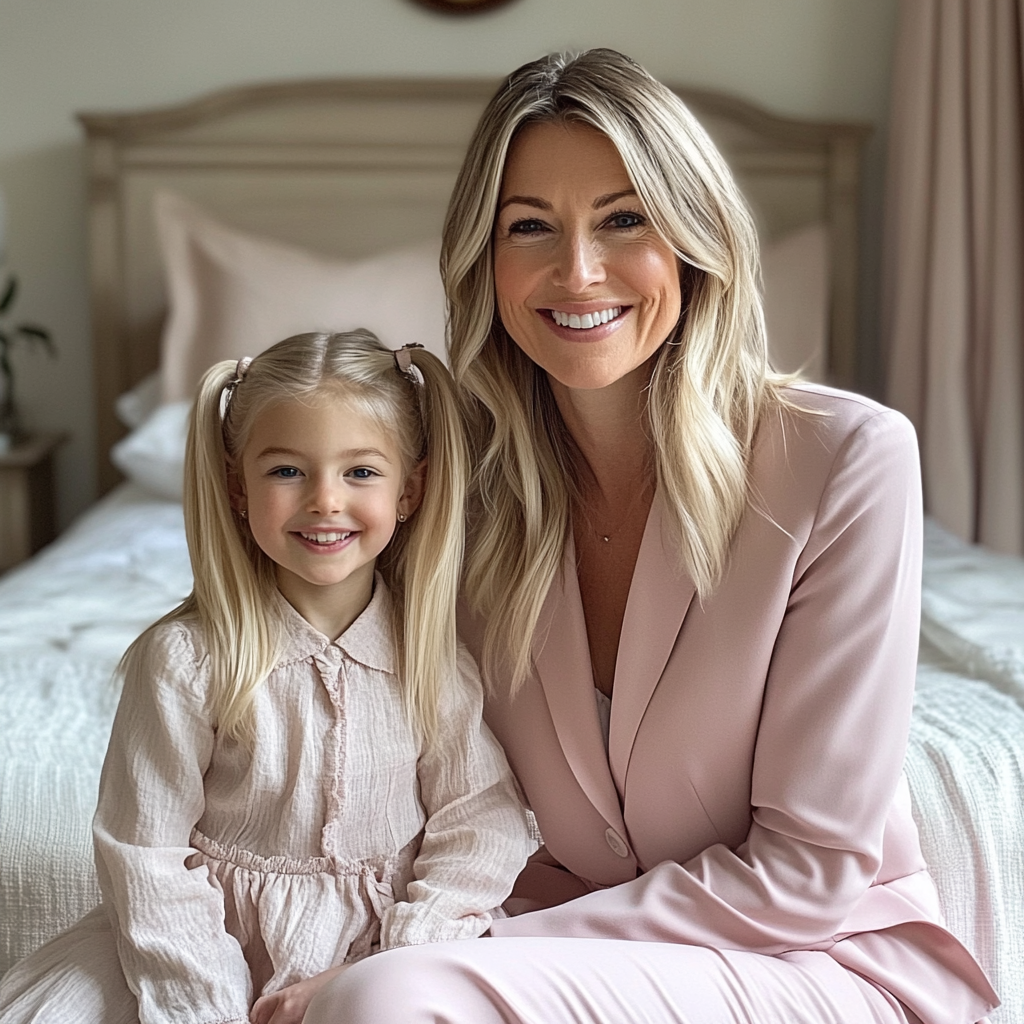
A smiling mother and daughter duo | Source: Midjourney
If you enjoyed this story, here’s another one for you: Sam used to be a mama’s boy, always clinging to Candice and lighting up at the sight of her. But one day, that changed. He started avoiding her hugs, her kisses, and even her presence. At first, I thought it was just a phase. But there was more to it. Much more.
This work is inspired by real events and people, but it has been fictionalized for creative purposes. Names, characters, and details have been changed to protect privacy and enhance the narrative. Any resemblance to actual persons, living or dead, or actual events is purely coincidental and not intended by the author.
The author and publisher make no claims to the accuracy of events or the portrayal of characters and are not liable for any misinterpretation. This story is provided “as is,” and any opinions expressed are those of the characters and do not reflect the views of the author or publisher.


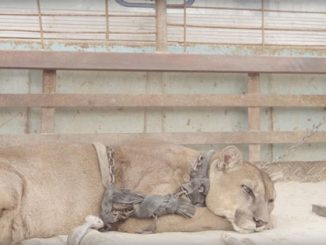
Leave a Reply